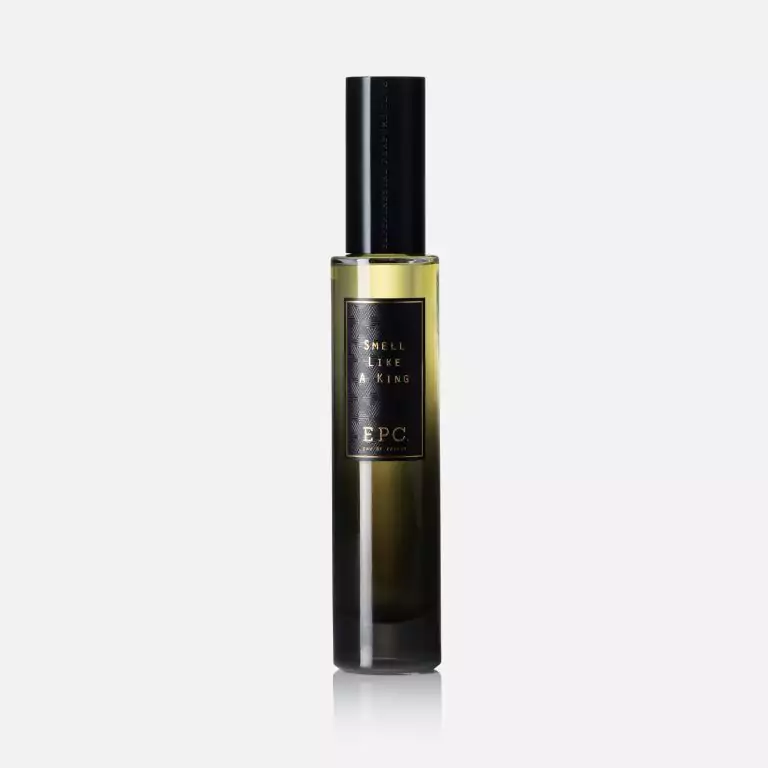Problem: Finding unique niche perfumes in a market flooded with mass-produced fragrances is becoming harder. Many consumers crave something exclusive, personal, and luxurious—niche perfumes in particular—but struggle to find it.
Agitation: In the UK, the demand for niche perfumes in has skyrocketed, driven by consumers who value individuality, sustainability, and artistic craftsmanship. With Gen Z influencing trends, the rise of gender-neutral perfumes, and the growing demand for mood-driven scents, the niche perfume market is evolving fast. Brands that embrace unique ingredients, ethical sourcing, and personalized experiences are gaining a strong foothold in the industry.
Solution: In this blog post, we’ll explore the key trends shaping the UK niche perfume market in 2025. From homegrown indie brands to sustainable fragrance houses, you’ll discover what’s driving this fragrance revolution. Whether you’re a perfume enthusiast, retailer, or simply curious about the future of luxury fragrances, this guide will provide you with valuable insights. Ready to explore the future of niche perfumes in the UK? Let’s dive in.
As we explore the key trends shaping the UK niche perfumes in market in 2025, it’s essential to recognize that these niche perfumes in offer something beyond mere scent—they provide an identity.
The Evolution of British Niche Perfume Brands
The UK niche perfume market is experiencing a major shift, driven by the growth of unique niche perfumes in by homegrown perfume houses. Independent brands are disrupting the market by offering unique, handcrafted scents that stand apart from mass-market fragrances. Consumers are drawn to these artisanal brands for their commitment to quality, creativity, and sustainable practices. This growing demand for individuality has opened doors for British niche perfumes in to thrive.
Artisanal and indie brands like Liberty LBTY London, Flora Danica, and Who is Elijah are leading the way. These brands focus on using high-quality, ethically sourced ingredients to create unique fragrances that resonate with modern consumers. For example, Liberty LBTY’s Zephirine Eau de Parfum combines fig, rose centifolia, and suede to deliver a luxurious and unconventional scent. This artisanal approach allows brands to offer exclusive experiences, making niche perfumes highly desirable.
As consumers continue to favor unique, ethical, and high-quality niche perfumes in, British niche perfume brands are set to dominate the market in 2025.
In addition to creativity, sustainability plays a big role in the growth of British perfume houses. Many brands now prioritize carbon-neutral production, biodegradable packaging, and locally sourced ingredients. This aligns with consumer values and boosts brand loyalty. Despite post-Brexit challenges, the demand for homegrown brands is increasing. As consumers continue to favor unique, ethical, and high-quality fragrances, British niche perfume brands are set to dominate the market in 2025.
Shifting Consumer Preferences
In this new landscape, niche perfumes in are becoming essential to expressing individuality and catering to personal preferences.
This evolution emphasizes the role of niche perfumes in as a medium for self-expression and mood enhancement.
Consumer preferences in the UK fragrance market are shifting, with a growing demand for individuality, inclusivity, and emotional connection. Gen Z, in particular, is influencing the market by favoring unique niche perfumes in that align with their personality and style. Unlike previous generations, Gen Z prefers to build a “fragrance wardrobe” that caters to different moods and occasions. This demand for variety is reshaping the perfume industry.
By investing in niche perfumes in, consumers are not only making a scent choice but also aligning with brands that reflect their values.
Social media platforms like TikTok (#PerfumeTok) have played a massive role in this shift. Viral trends and fragrance reviews have made niche and luxury perfumes more accessible to younger audiences. Popular unisex perfumes like Maison Margiela’s Replica Bubble Bath and Diptyque’s Orphéon reflect this trend. Additionally, smaller perfume bottle sizes have gained popularity, allowing consumers to experiment with multiple scents without committing to one.
This trend ensures that consumers feel good about their choices in niche perfumes in while supporting sustainable practices.
Another major trend is the rise of gender-neutral and unisex fragrances. These perfumes break traditional gender norms, offering balanced notes like fresh citrus, woody undertones, and spicy blends that appeal to everyone. The desire for self-expression and inclusivity is driving the demand for unisex scents, allowing consumers to wear what feels right rather than what fits societal expectations. As personalization becomes key, mood-driven fragrance purchases are also rising. Consumers now choose scents based on how they want to feel—energized, relaxed, or confident—making fragrance an essential tool for self-care and self-expression.
Sustainability and Ethics in Niche Perfumery
This accessibility to niche perfumes in is reshaping consumer habits and preferences.
Sustainability and ethical practices have become top priorities in the UK niche perfume industry. With consumers demanding transparency and eco-friendly solutions, many perfume brands are adopting carbon-neutral production, ethical sourcing, and sustainable packaging to reduce their environmental impact. This shift is transforming the perfume industry, making sustainability a key driver of growth.
Several British niche perfume brands are leading the sustainability movement. For example, Flora Danica’s 1761 Eau de Parfum uses responsibly sourced ingredients like lemon, sage, and patchouli for their unique niche perfumes in, along with biodegradable packaging.
This trend highlights the versatility of niche perfumes in and how they cater to diverse preferences and palates.
Post-Brexit challenges have also shaped the perfume market. Increased trade barriers and higher customs costs have made it harder for UK-based brands to expand into European markets. However, many brands have turned this challenge into an opportunity by emphasizing local sourcing and production. This shift supports the British economy while reducing carbon footprints. As sustainability and ethics become key purchasing factors, niche perfume brands that prioritize eco-friendly practices are expected to thrive in the UK market.
Technology and Personalization
By choosing niche perfumes in, you are choosing to express your individuality in a world of mass production.
AI is changing how we shop for niche perfumes in in exciting ways. Companies now use smart technology to match your skin chemistry and preferences with the perfect scent. These AI systems take the guesswork out of finding a fragrance you’ll love. Some brands have even created smart bottles that adjust scent strength based on the weather or wearable devices that create your own personal scent bubble. This tech makes finding your ideal niche perfumes in easier than ever before, like having a personal fragrance expert at your fingertips.
TikTok has become a major force in perfume trends through #PerfumeTok, which has over 5.2 billion views. Young shoppers now discover new scents through influencer videos rather than traditional celebrity ads. TikTok creators share perfume try-ons and reviews that make high-end fragrances feel more accessible. Gen Z users particularly love niche scents, food-inspired fragrances, and affordable versions of luxury perfumes. This social media platform has helped small, independent brands gain popularity and turned unknown scents into must-have items. Beyond just smell, perfume brands now create full sensory experiences by pairing scents with sounds, visuals, and even tastes to create deeper connections with customers.
The Future of Niche Perfumes in the UK
Food-inspired scents are taking over the UK niche perfume market. These gourmand niche perfumes in smell like delicious treats with notes of vanilla, cocoa, caramel, and praline. The market for these sweet-smelling perfumes is growing fast and is expected to reach $55 billion by 2033.
Luxury niche perfumes are becoming more affordable for everyday shoppers. Independent beauty brands like Montale, Le Couvent, Anthese, and Kayali offer quality fragrances at lower prices than traditional luxury brands. These companies focus on creativity and authentic scents while keeping costs reasonable. This trend of affordable luxury is perfect for people who want special perfumes without spending too much. Niche brands are also creating scents that last longer throughout the day, using ingredients like sandalwood, musk, vanilla, and leather. These perfumes change over time, starting with light top notes and developing into deeper base notes. Many brands now offer refillable bottles to reduce waste, like The Different Company and Maison 21G, making luxury perfumes both better for your wallet and the environment.
Conclusion
The niche perfume market in the UK is changing in exciting ways. As we head into 2025, now is the perfect time to explore these unique niche perfumes in that match your personality and values.
Step into your local boutique or explore online shops to discover these hidden gems. Try building your own fragrance wardrobe with smaller bottles that let you switch scents based on your mood. Look for brands that care about the planet and offer refillable options. Most importantly, trust your own preferences rather than following mainstream trends.
Ready to dive deeper into the world of niche perfumes? If you have questions or need personalized recommendations, please reach out to me directly at darina@atelier-niche.com. I’m here to help you find your perfect signature scent.
Frequently Asked Questions about Niche Perfumes in
1. What makes a perfume “niche” instead of mainstream?
Niche perfumes in are created by independent brands focusing on unique scents, high-quality ingredients, and small-batch production.
2. Are niche perfumes worth the higher price?
Yes, many niche perfumes offer better quality ingredients, longer-lasting formulas, and unique scent combinations you won’t find elsewhere. Many brands now offer affordable luxury options that provide excellent value while maintaining quality.
Yes, many niche perfumes in offer better quality ingredients, longer-lasting formulas, and unique scent combinations you won’t find elsewhere.
Gourmand niche perfumes in smell like food or desserts. They feature notes like vanilla, caramel, chocolate, and praline that remind you of sweet treats.
4. How can I find a niche perfume that suits my personality?
Try using AI-powered recommendation tools, exploring niche perfumes in on #PerfumeTok, or visiting specialty boutiques.
5. Are unisex fragrances really suitable for everyone?
Yes! Niche perfumes in are designed with balanced notes that work well regardless of gender.
6. How can I make my perfume last longer?
Choose niche perfumes in with long-lasting base notes like sandalwood, musk, vanilla, or leather.
7. What are the most sustainable niche perfume brands in the UK?
Brands like Flora Danica, The Different Company, and Maison 21G offer sustainable niche perfumes in with eco-friendly packaging.
8. How many scents should I have in my “fragrance wardrobe”?
There’s no right answer, but many enthusiasts suggest having 3-5 different niche perfumes in to match various moods and occasions.
9. Can I sample niche perfumes before buying a full bottle?
Yes! Many niche perfume brands offer sample sets or discovery kits that let you try several niche perfumes in before committing to a full-size bottle.
10. How is Brexit affecting the UK niche perfume industry?
Brexit has created challenges for UK niche perfume brands trying to sell in Europe due to trade barriers and customs costs.

Darina Doroshenko is the Managing Director of Atelier Niche; specializing in bringing exclusive niche perfume and skincare brands to the UK, Europe, CIS, and Middle East. With over 18 years of experience, she has held top positions at prestigious brands like Chanel, Givenchy, Shiseido, Penhaligon’s, L’Artisan Parfumeur, Serge Lutense, and Roja, overseeing all channels of distribution.



0 Comments